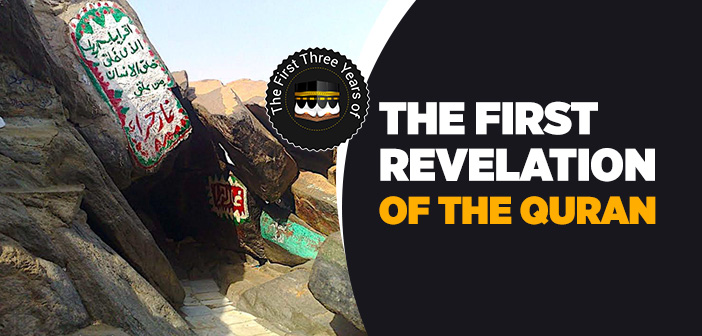What is the difference between risalah and nubuwwah?
Allah, glory unto Him, willed to address His servants through exceptional figures raised from among them, by entrusting them with Prophethood; a Divine routine revealed in the Quran as:
وَرُسُلاً قَدْ قَصَصْنَاهُمْ عَلَيْكَ مِن قَبْلُ وَرُسُلاً لَّمْ نَقْصُصْهُمْ عَلَيْكَ
“Of some messengers We have already told you the story; of others We have not…” (an-Nisa, 164)
وَلَقَدْ أَرْسَلْنَا مِن قَبْلِكَ رُسُلًا إِلَى قَوْمِهِمْ فَجَاؤُوهُم بِالْبَيِّنَاتِ
“We did indeed send, before you, messengers to their (respective) peoples, and they came to them with Clear Signs.” (ar-Rum)
Beginning with the first man, through every epoch of history, the Almighty continued sending His Prophets, as nabi and rasul, as a mercy for human beings.
Nubuwwah, or prophethood in a general sense, denotes the ambassadorship between the Almighty and His rational servants in regulating their affairs, both Here and in the Hereafter.
A rasul is a person, who receiving Revelation, is furthermore obliged to pass on what has been revealed in him to others. A nabi, on the other hand, is a person who receives Revelation whether or not he is obliged to pass it on. Generally, a nabi is sent to further communicate and reinforce the sharia, the canon law of a rasul sent before him. Therefore each rasul is also a nabi, though not every nabi is a rasul. There are many ahadith which indicate that the terms nabi-rasul have a universal-particular relation: that said, the Quran uses both terms interchangeably.
To the question that may arise as to why the Almighty does not address His servants directly but instead through Prophets, the following response could be rendered:
It is contrary to the mystery of the great trial that comprises the underlying reason of the existence of the universe, for the Almighty to disclose His Revelation through a direct addressing of humankind. Faith would have then lost the honor and worth it has, in its pertaining to an unknown. Receiving commands and prohibitions directly from the Almighty, humankind would have had no choice but to believe, for being directly conscious of the reality of Allah, glory unto Him. By preventing human beings from making a willful choice of either good or bad, this would have in turn rendered the awaiting reward and punishment nonsensical.
On the other hand, human beings are of different levels of understanding, power and ability, for no other reason that they each have different functions to carry out in life. Had all human beings been talented, there would have remained certain things nobody would have liked to do. The fulfilling of all outward functions of the world, from the lowest to the highest, has necessitated that human beings be created in various grades of ability.
The greatest leaders, teachers and guides in the history of mankind are prophets. It is imperative that persons, who are to guide society and moreover show them the right way and endure the torment and hardships that may come therefrom, are endowed with supreme abilities and an endless reserve of patience. Unless they are blessed with high qualities and supreme features of character that people will admire, swaying the masses and guiding them will remain impossible.
Even with ordinary leadership, a person may not become a leader without possessing higher qualities than those under him. Even if he does somehow find himself as a leader, he cannot be successful, for no other reason that the insufficient are never truly recognized as leaders.
It is for that reason that Prophets are acknowledged as naturally endowed with greater qualities. Yet, they cannot be prophets solely through their personal will, by simply putting to use the talents they have from predisposition. Among them, prophethood is exclusive to those handpicked and appointed by the Almighty. Simpler put, neither nubuwwah nor risalah are earned: one cannot acquire them through effort. Instead, Allah, glory unto Him, appoints whoever He wills from among His servants.
So the ayah declares:
اللّهُ أَعْلَمُ حَيْثُ يَجْعَلُ رِسَالَتَهُ
“Allah knows best with whom to place His message.” (al-Anam, 124)
In contrast, selecting an ordinary person to carry Revelation is equally incompatible with Divine Will, as not everyone is competent enough to conceive and convey the Word of the Almighty. Prophets have therefore been specially selected from among the most competent, chosen to carry the heavy burden of prophethood, by virtue of the innate endurance with which they have been gifted.
Source: Osman Nuri Topbaş, The Prophet Muhammed Mustafa the Elect, Erkam Publications





